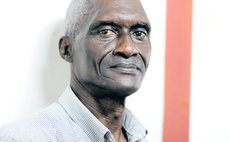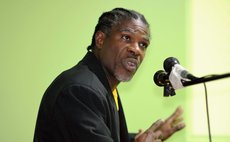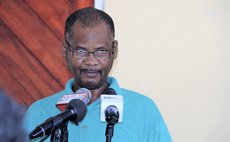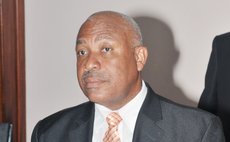The real meaning of the protests in Venezuela
By Jose Gomez Ambassador of Venezuela to Barbados
It is obvious to keen observers that a coup d'état is being attempted in Venezuela,
The tactics are inspired by the "Gene Sharp" protocol. Sharp is a former U.S. military officer, now professor of political science at the University of Massachusetts and author of an essay entitled 'From Dictatorship to Democracy'. The essay provides a political framework as a method to undermine the stability of an established government that is regarded as 'not friendly' to the United States.
The book, translated into more than 30 languages, describes methods to overthrow governments, divided into three major phases: protest, non-cooperation and intervention. It is these methods that are being employed by the opposition in Venezuela following the outcome of the presidential election of April 14, 2013 in which they were defeated by Nicolas Maduro. The methods are:
"Softening: the development of media priming and agenda setting in national and international public opinion focused on actual or potential deficits; thrust of conflict and promotion of discontent". The media is overwhelmingly in the hands of the opposition.
"De-legitimization: manipulation of antic-communist or anti-populist prejudices, encouragement of advertising campaigns for press freedom, human rights and civil liberties". This has now entered an intense phase in Venezuela but is also being spread to international media.
"Warming Streets: building street mobilization, development of a platform of struggle that globalizes political and social demands; generalization of all types of protests". This aspect, funded in part by external forces, including clandestine operations of US agencies, is fully documented in US communications revealed by Wiki-leaks.
"Combination of various forms of struggle: organizing marches and attacks on emblematic institutions, development of psychological warfare operations and armed actions to justify repressive measures and create a climate of lawlessness events, promotion of international isolation and economic siege". These efforts are well underway.
"Institutional fracture: based on street actions and military pronouncements the President is forced to resign. Or In cases of failure, the ground for a foreign military intervention or the development of a protracted civil war is promoted". This is the obvious objective of the various organized and well-funded demonstrations that have been dubbed "the Venezuelan Spring" by some US media – an allusion to the demonstrations and protests in Arab countries that led to regime change and external military intervention.
Explosion was planned for 8 December 2013 when municipal elections were held in Venezuela. Right wing leaders repeated throughout the election campaign that a defeat of Chavez-linked parties would bring the Government of Nicolas Maduro to an abrupt end. But, the plan was scuttled by the will of people. A landslide victory in the municipal elections of the Chavez party, whose votes outnumbered the opposition by more than 11 points, thwarted the opposition forces. The country ended the year with an uneasy political settlement, for even though the opposition forces had lost, they did not accept the decision of the people. Nonetheless, President Maduro called for a national dialogue. But his call was spurned.
A new adventure by the Venezuelan right wing emerged. In line with the third tactic of the "Gene Sharp" protocol, Leopoldo Lopez and Maria Corina Machado campaigned "to heat the streets" until President Maduro leaves office. By his call, made on January 23, to remain in the streets until achieving the overthrow of President Maduro, Lopez initiated an insurrectional plan against the democratically-elected government of Venezuela. On February 6, actions began to "heat the streets" with vandalism by small groups in the states of Táchira and Merida. In San Cristobal, capital of Táchira, protesters besieged the residence of the state governor for hours.
On 12 February a demonstration was mounted outside the Attorney General's Office with no interference by the security forces. Then, two people were fatally shot. The shooting was blamed on the security forces although this has been denied and no evidence has been produced to support the claim. But the shooting achieved the "required deaths" of the fourth tactic of the "Gene Sharp" protocol by inflaming the minds of opponents of the government and spreading their desire for revenge.
Since the tragic events of 12 February, lawless street activity intensified designed to create an untenable situation for the government. These activities included violent street protests, road closures, tree felling, forest fires, killing people and animals, damage to public property, pot-banging, threats and attacks on the general population particularly against working class people. Their ultimate goal is to overthrow the government.
Although "guarimbas" (as violent protests were named by opposition groups) were confined to the few municipalities where the opposition dominates, their consequences have been tragic. Most of the people killed have been innocent victims of destruction that characterize "guarimba". They have not affected areas where support for the revolutionary government remains firm. Of the 335 municipalities in Venezuela, violence has permeated only 18 of them perpetrated by an opposition that refuses to accept the will of the people who have elected Chavez-linked parties in four elections in a year.
Spreading rumors and psychological warfare operations, included in the "Gene Sharp" manual, are the modus vivendi of the Venezuelan privately-owned, opposition media. They have shown no scruples in distorting and in publishing disinformation, misrepresentation and omission.
An orchestrated psychological warfare has also been launched in the social media to paint a false picture of the country. Among the most blatant distortions are images from violence in other countries that are maliciously purported to be in Venezuela. The purpose is do nothing less than provoke outrage and political instability.
The miscommunication siege has been effective in its goal of portraying Venezuela in some parts of the international community as a nation with problems of governance even though the reality is that over 90 % of the country is calm and its inhabitants are going about their normal lives. But, despite the efforts of the wealthy media apparatus, the truth is emerging. Support for democratic continuity has been ratified by many better-informed global institutions including UN, OAS, CARICOM and UNASUR.
The Venezuelan government maintains its policy of calling for peace – a call that has been opposed by a violent and aggressive minority led by Leopoldo Lopez, Maria Corina Machado and Alfredo Ledezma whose known connections with, and financing from, several US right-wing groups and agencies controlled by them have been exposed by Wiki-leaks. More than 85% of Venezuelan citizens reject the violent and criminal behavior of "guarimberos".
The government, therefore, remains strong and remains strongly committed to peaceful development in the interest of its own people and the people of our Hemisphere.




